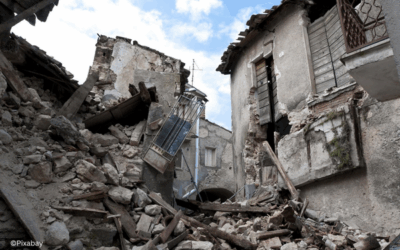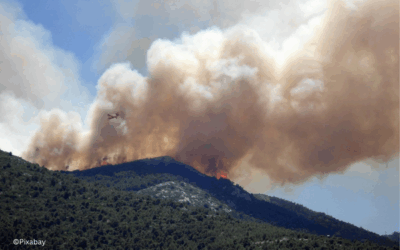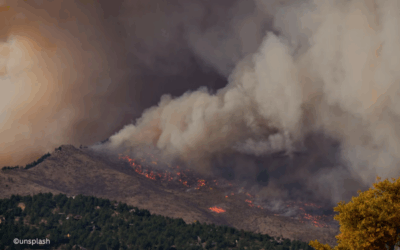The DKKV is…
German Committee for Disaster Reduction e.V. (ger.: Deutsches Komitee Katastrophenvorsorge e.V.)
Newsblog
Earthquake in Turkey
A strong earthquake shook Turkey on Sunday evening. According to the Euro-Mediterranean Seismological Centre (EMSC), the quake had a magnitude of 6.0, while the Turkish Disaster and Emergency Management Authority (AFAD) reported a magnitude of 6.1. The epicentre was...
Wildfire in California
In California, on Thursday, 7 August 2025 (local time), the so-called "Canyon Fire" broke out about 60 kilometres northwest of Los Angeles [1, 2, 3, 4]. It spread rapidly within a few hours and burned almost 22 square kilometres of hilly terrain by Sunday [1]. The...
Opening of the new AI centre at the German Weather Service
The German Weather Service (DWD) has opened its new AI centre in Offenbach to make targeted use of artificial intelligence for weather and climate applications. The centre combines internal and external expertise and is developing, among other things, a modular AI...
Wildfire in France
France is currently experiencing its largest wildfire in more than 75 years. The fire spread rapidly in the south of the country in the mountainous Corbières region, affecting more than 16,000 hectares [1,2]. A total of 15 municipalities have been affected, numerous...
Follow us




What is disaster risk reduction?
Storms, natural hazards and extreme events can quickly become a danger to people and the environment. But climate change, extreme urbanization, power outages and fires also offer potential hazards.
A disaster occurs when the functioning of a community or society is impaired or interrupted and, as a result, high human, material, economic and ecological losses occur that cannot be managed alone.
Precautionary measures can help to reduce the consequences and impact of the disaster. Depending on the hazard and personal circumstances, the precautionary measures to be taken may vary.
Find out more about potential hazards and individual precautionary measures on our topic pages.






